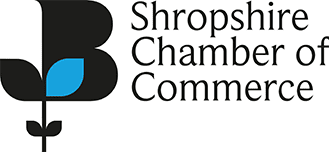Figures published last Friday by the ONS display the harrowing effects that the coronavirus crisis has already had on the UK economy. In April GDP fell by 20.4%, the largest monthly contraction since records began.
Last week, The Treasury announced that almost 9 million workers’ wages are now being paid by the UK government under the Coronavirus Job Retention Scheme.
Of course, a shock to the economy was to be expected, with a large proportion of UK businesses going into lockdown towards the end of March. However, these figures represent a stark reminder of the difficulties firms will face as we all try to navigate ourselves into ‘a new normal’.
Today, all non-essential retailers have been allowed to reopen their doors to customers and the early signs suggest that many consumers have ventured out to the high street to regain some normality in their shopping habits, after nearly three months of store closures.
This shock has hit every corner of the UK and Shropshire is no exception. In our latest survey of Shropshire businesses, we found that, 67% of those surveyed had seen a lack of sales and 24% of firms said they intend on making some redundancies in the future. Moreover, we also found that around 70% of businesses had furloughed a proportion of their staff over the last 6 weeks.
Commenting on the ONS’s figures, The BCC’s Head of Economics Suren Thiru said “With a monthly fall in UK GDP over thirty times the average month on month decline during the global financial crisis, the economic impact of Coronavirus has been put into sharp relief.
“With lockdown restrictions gradually easing and shops beginning to reopen, April is likely to prove to be the low point for the UK economy. However, any prospect of a ‘V-shaped’ recovery remains unlikely, with many sectors continuing to operate at reduced capacity.
“Some firms, including those in our hospitality, leisure and tourism industries, may remain closed for some time and will require flexible and open-ended government support to weather the economic storm.
“Over the coming months, further action will be needed to limit the long-term economic damage and kick start a recovery, including closing gaps in government support and providing incentives to help stimulate consumer demand and business investment. Establishing air bridges between countries with low infection rates would provide a much-needed boost to key parts of the UK economy”.












Latest News